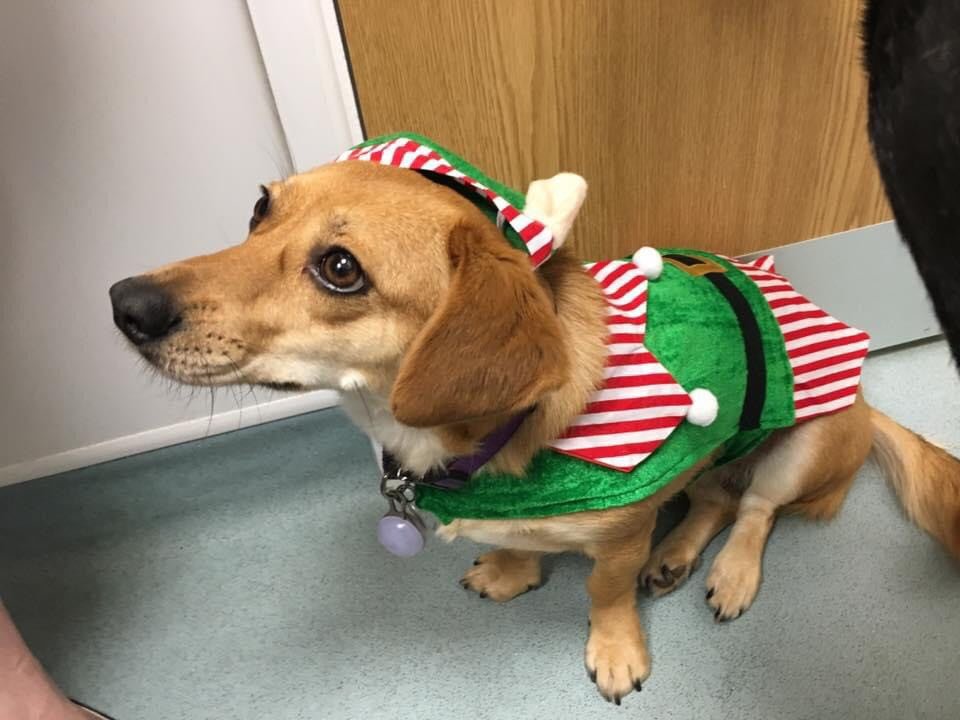Festive Risks For Pets
Festive Dangers for Pets: A Comprehensive Guide
The holiday season is a time of joy and celebration, filled with decorations, festive plants, delicious food, and cherished traditions. However, some of these can pose potential hazards to our beloved pets. Here’s a guide to help you keep your furry friends safe during the festive season.
Festive Plants and Flowers
Several festive plants and flowers can be harmful to pets:
Poinsettia: While not as toxic as often believed, the milky white sap of poinsettias can cause dogs to dribble, vomit, or sometimes have diarrhoea. It’s best to keep these plants out of your pet’s reach.
Holly: All parts of the holly bush contain a poisonous chemical that can cause irritation in the mouth, vomiting, or diarrhoea. The spiky leaves could also cause scratches and pricks.
Mistletoe: Although generally considered to be of low toxicity, some pets might develop drooling, a tummy ache, vomiting, or diarrhoea after consuming mistletoe. In rare cases, pets may show signs of being wobbly on their feet, tremors, or fits.
Ivy: If eaten, ivy can cause a tummy upset, while contact with the skin can cause severe irritation or allergic contact dermatitis.
Potpourri: Made up of a number of dried plants and flowers, potpourri can cause vomiting and diarrhoea. Harder items, like pinecones or bark, could get stuck in your dog’s throat, cause breathing difficulties, or cause a blockage in their gut.
If your pet has eaten a toxic plant, remove the plant, get a sample of the plant or take a photo, ensure they are breathing normally, don’t induce vomiting or give home remedies, and call a vet/animal poison control centre immediately.
Festive Foods
Many of our favourite festive foods can be toxic to our pets:
Chocolate: Chocolate is toxic to dogs and even small amounts can cause serious illness.
Christmas Pudding and Mince Pies: Grapes and dried vine fruits, including currants, sultanas, and raisins, can cause severe kidney failure if eaten.
Salt rich foods. Consuming too much salt can lead to sodium ion poisoning in dogs. Symptoms of this condition can include vomiting, high fever, extreme thirst, diarrhoea, tremors, and seizures. Things like cured meats often also contain spices such as pepper and paprika, which are toxic to dogs.
High fat foods can lead to other health problems such as pancreatitis. Symptoms of pancreatitis can include a tender abdomen, appetite loss, vomiting, and loose, greasy, yellow bowel movements.
Onions, Garlic, Leeks, Shallots, and Chives: These all belong to the allium species of plant and are poisonous to dogs whether cooked or uncooked. Garlic, for instance, contains thiosulfate that deprives red blood cells of oxygen, causing the cells damage.
Alcohol: Alcohol has a similar effect in dogs as it does in their owners. It is mood altering and can cause toxicity resulting in sickness, dehydration and pain.
Macadamia Nuts: Macadamia nuts can cause lethargy (tiredness), weakness in the back legs, increased body temperature, tremors, and stiffness.
Sweets: Many of the sweets we eat over Christmas, such as candy canes, contain a sugar-free sweetener called xylitol, which is poisonous to dogs.
So, if you leave out a sherry and a mince pie for Santa then make sure they cannot be reached by your pets before he arrives. If your pet has eaten something harmful, contact your vet immediately. Treatment depends entirely on what your pet has eaten but it may include an injection to make them sick (given by your vet - never try to make your dog vomit unless your vet specifically tells you to), activated charcoal in a meal (helps absorb any remaining toxins and gas), an overnight stay on a fluid drip, blood tests. Not the best way to spend the festive period.
Festive Traditions
Some of our favourite Christmas traditions could also put pets at risk:
Christmas Tree: Christmas trees can be incredibly dangerous to our four-legged friends. The sharp pine needles can get stuck in your pet’s paws and can also cause a mild stomach upset or blockage if eaten.
Tinsel: Tinsel can be toxic if consumed by pets. Consuming them can cause intestinal blockages, sometimes requiring surgery.
Glass Baubles: Glass baubles can easily shatter if knocked off the tree or chewed. They can also look suspiciously like balls to dogs so keep these well out of reach. If you see you animal constantly licking or gnawing at an area. Check for splitters or tree needles before an infection can occur.
Remember, if you think your pet has eaten something they shouldn’t, contact your vet for advice. By being aware of these potential hazards, you can ensure a safe and happy holiday season for your entire family, pets included! Happy Holidays!



